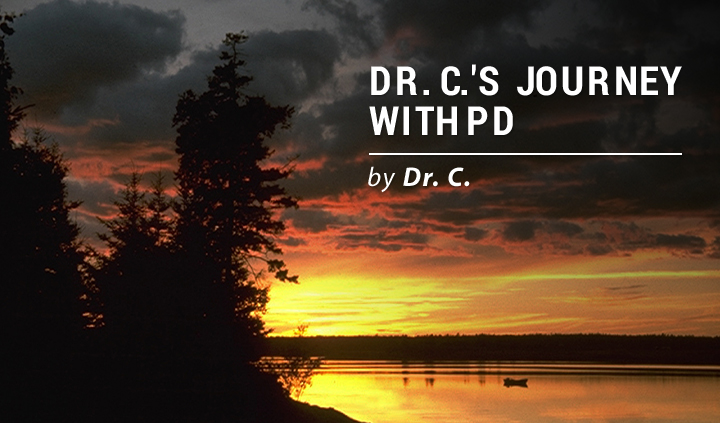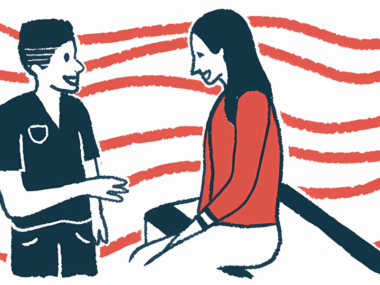Having a Wellness Map and a Healing Perspective Can Lead to Well-being Moments
Written by |

A man walks into a store and asks for a map. The storekeeper responds, “We have lots of maps. Where are you going?” The man snaps, “Anywhere but here.” The shopkeeper says, “Sorry. We don’t have a map to ‘anywhere but here.’”
When I was first hit with a sudden loss of vision, I wanted to escape. Anywhere was better than here. I thought I had lost my way to well-being because all I saw was a distorted view of life through my obscured vision. It seemed as if I had no wellness map. It took me a while to realize that there is no wellness map to “anywhere but here.” Instead, a wellness map can help us move toward an increased probability for well-being moments. The first step in that direction is to gain a perspective that promotes healing.
A well-being moment can be described as bliss, flow, mystical, and healing. It is characterized by clear euphoria, awe, sense of time loss, a shift in perception, and wisdom. Well-being moments are holistic, touching mind, body, emotions, and soul. These characteristics distinguish them from artificial “feel-good” moments.
Parkinson’s is a long, gradual, progressive disease with many changes and losses. The CHRONDI Creed illustrates some of the changes I made along the way to my wellness map. I had moments when I realized the extent of my loss — in my physical stamina, my ability to work, my coordination, and my ability to easily engage in activities that I had previously enjoyed. Many of the changes incorporated a shift in perspective, which I described in a previous column.
Following my vision loss in combination with my Parkinson’s, the first tweak I made to my wellness map was to stop perseverating on the loss and to shift to seeking wisdom. This adjustment involves more than moving past grief and accepting the loss; it is a shift of focus away from loss, disease, and suffering, and on to what has been gained in this new Parkinson’s reality. The first tweak to the wellness map is shifting the perspective about the trauma to allow for more moments of well-being.
Some people are confused about well-being. Much suffering is linked to chasing after its feel-good aspect. Some think that the fleeting feel-good moment is all that there is as they reach out and grasp — or purposefully try to create — that moment of rapture. Grasping the butterfly destroys its wings; not grasping allows wellness to unfold. Tweaks to a wellness map are aimed at opening the possibility for well-being moments to occur and holding open that possibility with compassion, lightness, and patience. I have had times when I’ve lost a sense of well-being and had trouble using my map, but shifting to a healing perspective helped me to find my way back.
Do I have moments when Parkinson’s wears me down or makes me frustrated? Of course. Does my vision loss sometimes feel like “just one more thing” I’ve lost in my life? Absolutely. But each day is spent with the intent that I can continue to create my wellness map and walk toward a sense of well-being despite these challenges.
Having Parkinson’s and vision loss does not make me less of a person — to myself, my family, my friends, and my contributions to the world at large. These challenges merely represent a new way of seeing and interacting with the world to which I can adjust.
I believe that events are intertwined across time and space. My vision loss was connected to more of my life, including how I experienced Parkinson’s, than I was willing — or perhaps able — to understand at the time. The shift in perspective helped me to understand the meaning of my experiences, decrease the angst, and increase the frequency of well-being moments.
Well-being moments cannot be forced to happen. Alternatively, we create a life, an inner relational space, that is more conducive to the occurrence of well-being moments. Learning how to wisely access a shift in perspective is an essential part of living within that sacred relational space.
Well-being moments are characteristically difficult to describe. Perhaps we can come together and share our experiences of these moments in the face of Parkinson’s, and in doing so, expand our collective understanding.
Please share your well-being moment experiences in the comments below.
***
Note: Parkinson’s News Today is strictly a news and information website about the disease. It does not provide medical advice, diagnosis or treatment. This content is not intended to be a substitute for professional medical advice, diagnosis, or treatment. Always seek the advice of your physician or another qualified health provider with any questions you may have regarding a medical condition. Never disregard professional medical advice or delay in seeking it because of something you have read on this website. The opinions expressed in this column are not those of Parkinson’s News Today or its parent company, Bionews Services, and are intended to spark discussion about issues pertaining to Parkinson’s disease.






Deb Bomaster
Dr. C,
When I saw when you used the word flow, it reminded me of the research I had done on the importance of humor and play. Mihaly Csikszentmihalyi's. I was recently diagnosed with Parkinson's at 63 and I am realizing that tapping back into my humor research is going the be as you put it "the wellness map" I will need to take on this new normal.
Dr. C
Mihaly's work on flow is foundational for me in building a wellness map making guide. Humor and play are important as part of the wellness map. Is your research under the same name as your post? Keep an eye out for the next column which talks about shifting perspective. Thanks for the post - great stuff!
rosalie maude
I was diagnosed 16 years ago at age 53. I always said that I was thankful to God for my faith that for my sense of humor. I’m afraid my humor is dwindling though as of late, as my disease is progressing rapidly partially due to the fact that I had a shoulder replacement (second one in the year ) and now find myself in a wheelchair, with weak legs and limited mobility. I really wasn’t prepared for this yet at this juncture of my life. Perhaps part of it has to do with the fact that this morning I went to a very moving funeral mass, and since then my day has been going downhill. I long to get out of this wheelchair and back with my walker. It helps to write all this down. Thanks for listening.
Rose
Dr. C
Thanks Rose for sharing. There is loss that comes with both chronic disease and aging. Not just loss of physical mobility but loss of friends. How does your faith help you through all this?